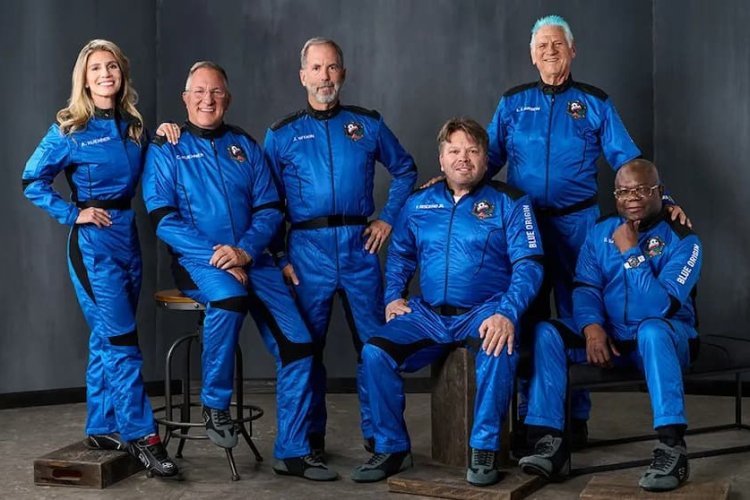Owolabi Salis, a distinguished Nigerian-born lawyer, chartered accountant, and politician, has made history by becoming the first Nigerian to travel to space. His participation in Blue Origin’s NS-33 mission marks a monumental achievement, not only for Nigeria but for the entire African continent. The mission launched from West Texas, carrying six civilian passengers, including Salis, into suborbital space, further advancing the vision of space tourism and international representation in outer space endeavours.
Born in Ikorodu, a bustling town in Lagos State, Nigeria, Salis's journey from the streets of Lagos to the edge of space is a testament to his lifelong pursuit of excellence. He is a dual-qualified professional — both a chartered accountant and an attorney licensed to practice in Nigeria and the United States. His career has been defined by a unique blend of public service, legal insight, and financial expertise. Over the years, he has played key roles in various sectors, advocating for social justice, equitable governance, and youth empowerment.
Salis is no stranger to public attention in Nigeria. As a political figure, he has run for governorship in Lagos State and has long been a vocal advocate for transparency in public institutions. His ventures have always carried a thread of public interest — a characteristic that carried over into his latest achievement.
The Blue Origin NS-33 mission is part of a broader movement to make space more accessible to civilians. While government-sponsored astronauts have traditionally dominated space missions, companies like Blue Origin are now opening the space frontier to civilians, philanthropists, scientists, and adventurers. The New Shepard spacecraft used in the NS-33 mission is designed for suborbital trips, briefly carrying passengers beyond the Kármán line — the internationally recognized boundary of space, about 100 kilometers above Earth.

For Salis, this journey was not just about scientific curiosity or tourism; it was a deeply spiritual and philosophical endeavor. His words before the mission — describing it as a "spiritual journey" — echo a broader narrative of purpose and reflection. As he described it, traveling to space was not just about looking outward, but also inward — a journey into the very nature of human potential and responsibility.
Salis’s spaceflight also carries immense significance for Nigeria and Africa at large. Africa’s representation in space travel has historically been limited, with very few individuals from the continent ever making such journeys. Salis’s achievement sends a strong message: Africans have a rightful place in the future of science, technology, and exploration. His journey is expected to ignite renewed interest in STEM (science, technology, engineering, and mathematics) among African youth. Governments, educational institutions, and private sector leaders may now feel a greater impetus to invest in space science, research, and education. Salis himself has expressed a desire to see more young Africans embrace science and innovation, noting that “the future belongs to those who dream and dare.”
Already, Salis’s story is inspiring a wave of optimism and ambition among Nigerians and the African diaspora. As news of his historic flight spread across social media and major news outlets, tributes poured in from various corners of the world. From aspiring engineers in Lagos to university students in Nairobi, many young Africans now see space not as an unreachable frontier, but as a destination within grasp. Owolabi Salis has made history, not just as a Nigerian in space, but as a global citizen carrying the hopes of a continent. His mission may have lasted only a few minutes in space, but its impact will resonate for generations to come.


Your email address will not be published. Required fields are marked *